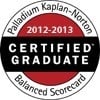Sales organizations are the engine of every company’s growth, yet they operate on the edge—pushed by tough goals, fierce competition, and relentless change. As a result, sales HR leaders face unique challenges: from battling talent shortages and high turnover to motivating teams and maintaining ethical, compliant practices.
But here’s the good news: every obstacle on this list can be overcome with the right strategy, smarter tools, and a people-centered approach. Whether you’re an HR director, sales leader, or founder, these proven solutions will help you hire, train, and retain the top performers who drive your company forward.
Ready to win the “people” side of sales? Let’s tackle the top 10 HR challenges holding back today’s best sales teams—and turn them into your competitive advantage.
Use Our Hubspot Inbound Marketing and Sales ROI Calculator to Find out the ROI you can Get From Using Hubspot Inbound Marketing and Sales Software.
The Top Sales HR Challenges Today

The sales world is fast-paced and demanding, requiring a resilient and driven personality to succeed. Because of this, finding and retaining excellent salespeople is a constant struggle for any HR leader. Here are the most pressing issues that sales departments and the HR teams that support them currently face.
1. Attracting Top Sales Talent
The best salespeople are always in high demand and they understand their value in the current labor market. To bring them onto your team, you need more than just a job posting; you need a powerful employer brand. Your company must present itself as an attractive destination for ambitious professionals.
Offering competitive compensation and generous benefits is the baseline for attracting talent. However, top performers are looking for growth opportunities and a supportive culture. Your talent acquisition efforts should showcase clear career paths and success stories from existing employees to paint a compelling picture.
Leverage your professional network and social media to find candidates who may not be actively looking for a new role. A strong referral program can also be a fantastic source of qualified leads. In a tight labor market, a proactive approach is necessary to build a pipeline of potential hires for your small business.
2. Onboarding New Sales Hires
Integrating new salespeople into the team quickly and effectively is critical for maintaining sales momentum. A slow or disorganized onboarding process leads directly to lost revenue and can frustrate new hires. Unfortunately, many companies fail to provide a structured experience, leaving new employees to figure things out on their own.
A successful onboarding plan should be a formal training program, not an afterthought. It needs to cover your products, internal processes, and the software tools your team uses. Assigning a mentor from your team of existing employees provides a valuable resource for questions and guidance.
Incorporate practical exercises like role-playing to build confidence and skills. A well-designed employee training program sets clear milestones for the first three months. The objective is to equip new hires with the knowledge and support they need to start contributing to the team's goals swiftly.
3. Keeping Sales Teams Motivated
The sales profession is a rollercoaster of highs and lows where rejection is a daily occurrence. This makes maintaining high morale and strong employee engagement an ongoing HR challenge. Your HR team needs to work with sales leaders to find sustainable ways to keep the team focused and driven.
Establish clear and attainable goals to give the team a target to strive for. It's important to celebrate all wins, from the largest deal to the smallest progress milestone. Healthy competition through contests can be effective, but it must be managed to maintain a collaborative team spirit.
Continuous development is another powerful motivator. Sales techniques and customer expectations are always changing, so provide regular employee training to keep skills sharp. Supporting the mental health of your sales team is also crucial for preventing burnout and promoting long-term success.
4. Managing Sales Performance
Defining and measuring success in a sales role goes beyond just looking at the final quota numbers. A fair and transparent performance management system is needed to motivate the entire team. This system should encourage improvement rather than create anxiety.
Your evaluation process should use a blend of metrics. While closed deals are important, also consider factors like customer satisfaction, pipeline growth, and collaboration with colleagues. Individual goals must be aligned with broader company objectives to ensure everyone is pulling in the same direction.
Regular, constructive feedback is far more effective than a single annual review. The HR manager can use data from your CRM to identify coaching opportunities and help underperformers improve. These business decisions, when based on solid data, have a positive impact on the whole department.
5. Reducing Sales Team Turnover
Sales departments frequently experience high employee turnover, which is both expensive and disruptive to business operations. High turnover increases labor costs and can damage valuable client relationships that take time to build. Retaining workers should be a primary focus for any HR professional.
To solve the turnover problem, you must first understand its root causes. Burnout, a lack of advancement opportunities, or a poor cultural fit are common culprits. Conducting exit interviews is an invaluable practice for gathering honest feedback from departing employees.
Create clear and accessible career paths within your organization to show salespeople a future with your company. Offer skill development opportunities that prepare them for the next step. Recognizing and rewarding loyalty can make a significant difference in whether employees feel valued and decide to stay for the long term.
6. Balancing Individual and Team Goals
Sales is often perceived as a field for individual achievers, but the most successful departments function as a cohesive team. The challenge for any hr leader is to foster a collaborative environment without diminishing the healthy competition that drives individual performance. It requires a thoughtful and balanced approach.
Implement a structure that includes both individual quotas and team-based targets. This encourages salespeople to support each other for collective success while still rewarding personal achievements. Promoting knowledge sharing and mentorship among team members can elevate everyone's performance.
Your commission structure needs careful consideration to avoid promoting overly aggressive or uncooperative behavior. Team-based bonuses for hitting collective goals can be highly effective. This balanced approach helps boost productivity and creates a more positive work atmosphere.
7. Adapting to Remote and Hybrid Work
The shift towards working remotely has permanently altered the sales landscape. Many teams now operate in a hybrid model, which introduces new hurdles for sales managers and the human resource department. Supporting a distributed team requires new strategies and tools.
Invest in technology that facilitates virtual selling and seamless remote collaboration. Your team will need training on how to effectively use video conferencing and digital presentation tools. Set clear expectations around communication, responsiveness, and availability to ensure everyone stays connected.
Maintaining team cohesion and a positive employee experience is more difficult when people are not physically together. HR teams can organize virtual team-building events to foster connections. It is also important to ensure remote workers have equal opportunities for growth and recognition.
8. Navigating Compensation and Commission Structures
Compensation is a powerful tool in sales, and your plan directly affects your ability to attract and keep top talent. Designing the right structure is complex, as it must motivate salespeople while also protecting the company's profitability. An effective plan requires ongoing attention and refinement.
Your compensation plans should be simple and easy to understand. Salespeople must see a direct link between their efforts and their earnings. Incentives should align with company goals, rewarding not just new deals but also customer retention and strategic upselling.
Some companies are now offering earned wage access, allowing employees to access their pay as they earn it. This can be a valuable benefit, especially for front-line workers. As suggested in publications like the Harvard Business Review, regularly review your compensation plans to ensure they remain competitive and relevant to your business needs.
9. Ensuring Compliance and Ethical Behavior
The pressure to hit ambitious sales targets can sometimes push individuals into ethical gray areas. It is the responsibility of the HR department to establish a strong ethical framework. This framework protects the company, its employees, and its customers.
Develop and clearly communicate policies regarding ethical sales practices and data handling, referencing your privacy policy. Train the sales team on compliance issues specific to your industry, such as regulations around customers' health information. Implement systems to monitor activities and prevent fraudulent behavior.
The goal is to cultivate a culture where integrity is more important than any single deal. Recognize and reward ethical behavior publicly. It must be clear that violations have serious consequences, reinforcing the company's commitment to high standards.
10. Leveraging Technology in Sales HR
Technology is revolutionizing how HR supports sales teams. From advanced recruiting software to sophisticated performance analytics, a wide range of HR tools are available. Staying current with these advancements is a challenge for even the most tech-savvy HR leaders.
Use data from your Customer Relationship Management (CRM) system to inform your workforce planning and HR decisions. This data can help you track key performance indicators and identify emerging trends. Modern core HR systems offer tools for continuous feedback, goal tracking, and managing a wider range of employee data.
However, technology should never completely replace personal interaction. Use tools to streamline processes and provide better insights, not to eliminate conversations. The best sales teams are built on strong relationships, both with their clients and within the team itself.
To make sense of the available technology, consider how different tools serve various HR functions.

| Tool Category | Primary HR Function | Example of Use |
|---|---|---|
| Applicant Tracking System (ATS) | Talent Acquisition | Manages job postings and candidate applications, streamlining the hiring of sales professionals. |
| Learning Management System (LMS) | Employee Training | Hosts onboarding materials and ongoing sales training modules, often accessible via a mobile app. |
| Performance Management Software | Employee Engagement | Tracks sales goals, facilitates regular check-ins, and manages performance reviews. |
| Compensation Management Tools | Core HR | Calculates complex commission structures and provides clear statements for sales staff. |
| Communication Platforms | Employee Experience | Connects remote and in-office team members for collaboration and company announcements. |
Conclusion
Successfully addressing sales HR challenges is fundamental to building a team that consistently performs at a high level. It requires a thoughtful mix of smart strategies, modern HR tools, and a genuine understanding of what motivates sales professionals. By proactively managing these issues, you foster an environment where top talent can excel.
From the retail industry to B2B tech, these challenges are universal. An investment in your people is an investment in your company's future. By supporting your sales team, you empower the engine that drives your business's growth and success through even the most challenging times.
We are a full-service Hubspot Certified Inbound Marketing and Sales Agency. In addition, we work to integrate your SAP System with Hubspot and Salesforce, where we have a deep delivery capability based on years of experience. Please our book a meeting service to get started.





